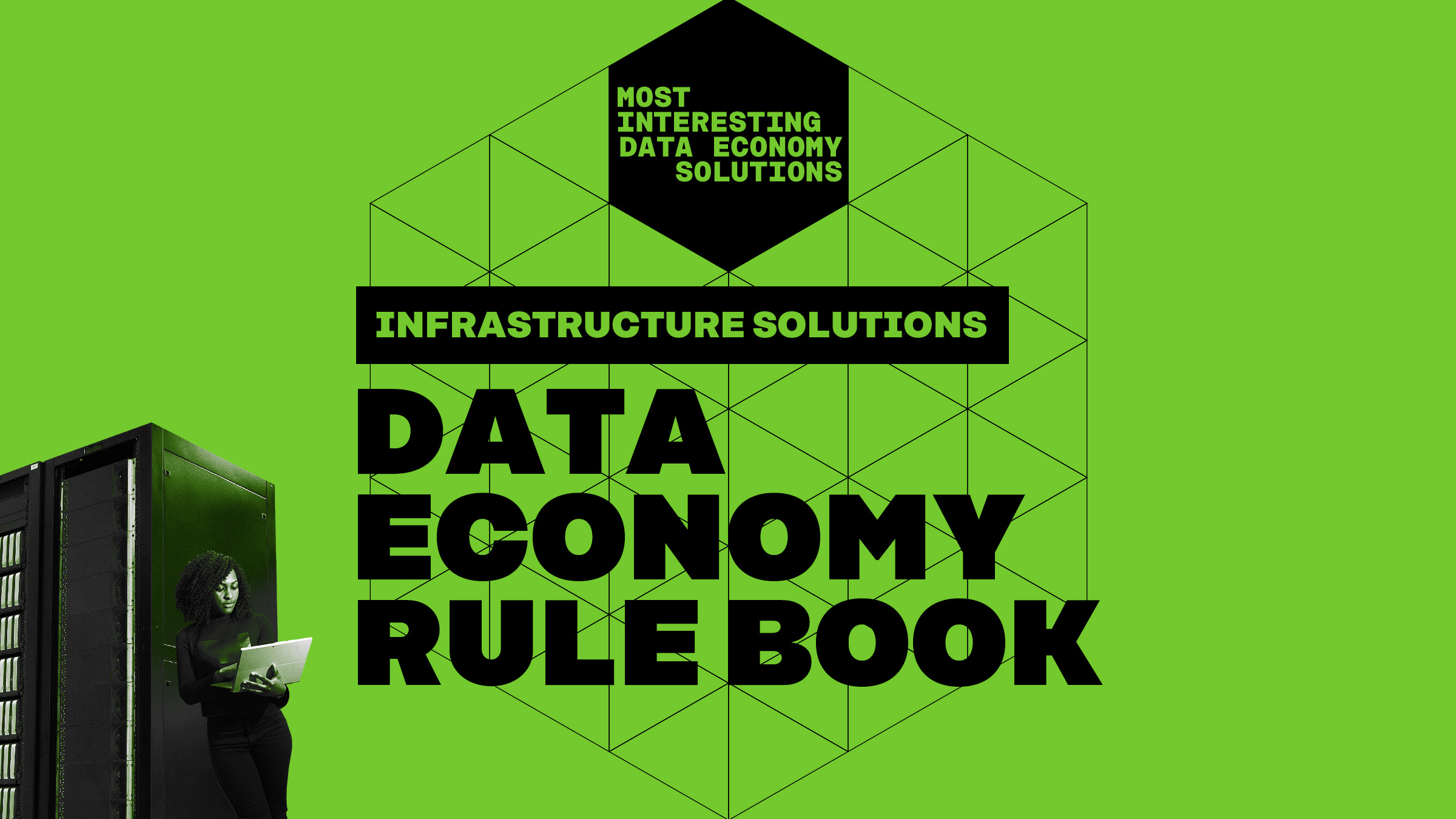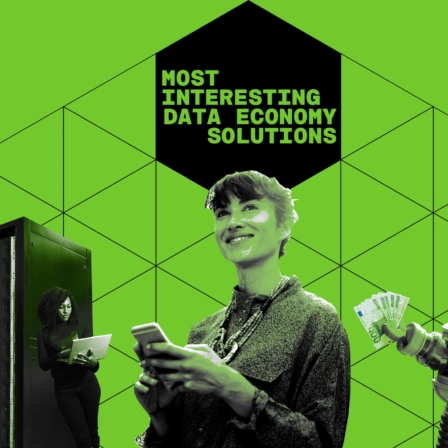Whether it’s a road trip across Europe or a business meeting across town, we now check the route on our sat navs. To find the route easily and effortlessly, we need up-to-date information from multiple.
The longer and more winding the journey, the more information the map service or journey planner needs to help the traveller avoid traffic congestion and road works, or take into account the transfer intervals between different modes of transport.
For the user of the service, it doesn’t really matter who provides the data, as long as it can be found quickly and is accurate. For those providing their data, trust is also an important factor.
Streamlining traffic by combining different types of information provided by different actors is an example of how complex challenges can be solved by sharing data once common rules have been agreed. The rules of the game, on the other hand, require a data economy rulebook that defines the terms under which the parties share their data, who can use it, and for what purposes.
The general template and guide for the data economy rulebook was originally developed at the Finnish Innovation Fund Sitra. The model is suitable for different industries and networks of different sizes. In the transport sector, the use of the rulebook model is already well advanced.
Traffic and transport organization in Finland have formed a common data ecosystem – a collaborative network – that shares data. The network started to develop its own rulebook in 2021 based on the Sitra model. It is the responsibility of the traffic management company Fintraffic, which is responsible for traffic management in Finland on land, at sea and in the air.
Networks agree on the conditions and purposes of data sharing
Transport operators have started to draw up a rulebook in order to improve the traffic flow and develop services to make them smoother. Reducing emissions and introducing autonomous transport also require a new way of information sharing.
The work on the rulebook began with interviews with the stakeholders and mapping the situational picture in order to understand what kind of technology and information already existed and how they can be used collaboratively. Participants in the network had to agree on common rules and practices on the commercial or other terms under which information is shared, who can use it and for what purposes.
The purpose of the rulebook is to facilitate the sharing of data in such a way that the organisations and people using the services in the network are better able to maintain control over the data they share and to decide on access rights to the data.
Now, nearly 200 stakeholders are involved in the transport data ecosystem to support transport development. All major domestic transport operators, such as VR, Finland’s state-owned railway company, Finnair, Matkahuolto, a company offering a wide range of travel, transport and logistics services to private and corporate customers, Helsinki Region Transport and the national public transport ticketing system Waltti, have committed to the rulebook. Many other actors are also involved. The aim is to expand the group even further.
“We have access to more than 95 per cent of public transport route and timetable data in Finland, as well as good data from Estonia. Next up are other neighbouring countries, such as Sweden and Norway. We also want to include electric scooters and taxis, for example, in order to make the travel chains as uniform and functional as possible,” says Janne Lautanala, Fintraffic’s Chief Ecosystem and Technology Officer.
Data from neighbouring countries is important, for example in planning smooth travel chains from Finland to the rest of Europe and beyond. In order to plan transfers between trains, ships and buses optimally there must be information on when and where each means of transport moves.
Other logistics are needed too
In addition to public transport, the transport sector also wants to make more efficient use of logistics data. One example of this is the Port Activity app, which improves the efficiency of maritime traffic and ports, and has also made the list of the most interesting in the data economy.
The sector also aims to make data available to cities and municipalities. In Helsinki, for example, the challenge is that road works or closed roads are not always visible on navigators. The data and observations of professional drivers also remain largely unused.
“Traffic professionals could use different terminal devices to provide up-to-date information on the state of the road network, so that other road users would also receive the latest information,” says Lautanala.
“Transport is a significant drain on household and business expenses. Therefore, streamlining it benefits society as a whole. Finnish households spend 13 per cent of their money on getting around. Companies spend the same amount on logistics. In Central Europe, the corresponding figure is around eight per cent. If we get the figure closer to the Central European level, Finland’s competitiveness and people’s available funds will increase enormously.”
The rulebook is suitable for networks of different sizes
The data economy rulebook model is currently being used in nearly twenty different contexts in Finland. It is estimated that dozens of new data sharing cooperation networks, or ecosystems, will emerge in Finland in the next few years, and hundreds or thousands at the European level.
In Europe, data sharing is well under way, says Marko Turpeinen, CEO of 1001 Lakes, a consulting company that specialises in data sharing.
The company has been involved in the creation of about ten rulebooks, including for managing production chains in the manufacturing industry and calculating environmental impacts. On the health side, data ecosystems have been created for the needs of pharmacovigilance information and home care for the elderly, and common rules have been agreed, for example, on the sharing of data by European children’s hospitals.
Examples in agriculture can be found in terms of the general rules for agricultural data and in the planning and implementation of precision farming.
According to Turpeinen, the model is equally suitable for networks involving ten or a hundred actors. There is no upper limit.
“At the European level, Finland has a competitive advantage because we are a society of trust, and it has been good to build cooperation on this basis. Better and more reliable data and effective collaboration will ultimately create a better society for us all.”


